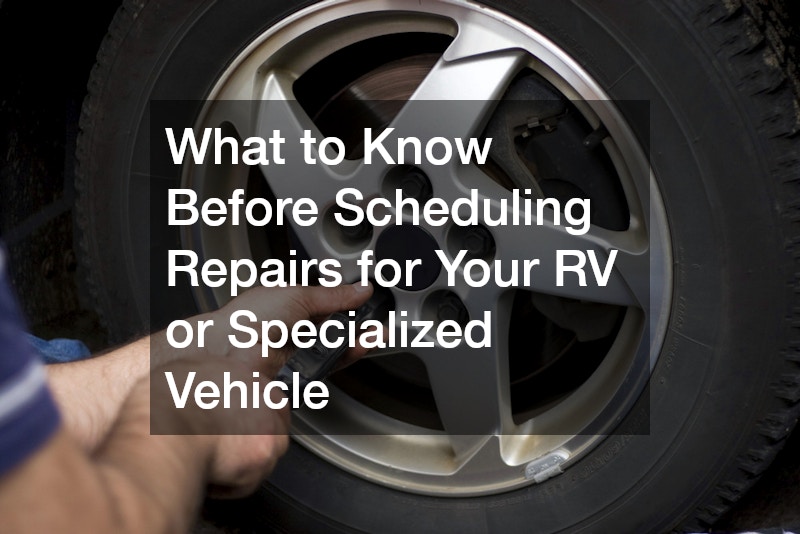
Introduction
Owning a car or any type of vehicle requires responsibility, maintenance, and sometimes, even repairs. Whether you’re driving a sleek sedan, a rugged RV, or a custom-designed vehicle, keeping your car in top condition can prevent costly repairs down the road and help ensure your safety on the road. From auto engine repairs to minor cosmetic fixes, regular maintenance is key to extending the lifespan of your vehicle and avoiding sudden breakdowns.
In this comprehensive guide, we’ll explore essential tips for maintaining and repairing your vehicle, offer guidance on selecting the right service providers, and delve into how proper care can enhance your car’s performance. Whether you’re handling routine inspections, considering major repairs, or thinking about customization, this guide will provide you with the knowledge you need to keep your vehicle in peak condition.
Essential Tips for Keeping Your Vehicle Running Smoothly

The first step to ensuring that your vehicle runs smoothly is consistent care. It’s easy to get caught up in the hustle and bustle of daily life and ignore small maintenance tasks, but these little things can add up over time. Here are some essential tips to help keep your vehicle in top shape:
Check tire pressure regularly.
– Low or uneven tire pressure can lead to poor fuel efficiency and cause premature tire wear. Make it a habit to check the pressure at least once a month and ensure that it’s in line with the manufacturer’s recommendations.
Change the oil regularly.
– Oil is the lifeblood of your engine. Changing it on schedule ensures that your engine runs smoothly, reducing friction and extending the life of your car. For most vehicles, an oil change is recommended every 3,000 to 5,000 miles, but always consult your vehicle’s manual.
Replace air filters.
– A dirty air filter can decrease fuel efficiency and put more strain on your engine. Replacing the air filter regularly will improve your car’s performance and overall health.
Keep an eye on the brakes.
– If you notice squealing sounds or a decrease in braking performance, don’t wait too long before having them inspected. Timely brake repairs are vital for your safety.
Maintain the battery.
– Make sure the battery is securely mounted, check for corrosion around the terminals, and clean the battery regularly. Having your battery tested periodically can also help avoid surprise breakdowns.
How to Choose the Right Service Provider for Your Car’s Needs
Choosing the right service provider is crucial to keeping your vehicle in top condition. Whether you’re seeking auto wheel repairs, a body shop to fix dings, or someone to help with an engine issue, it’s important to select a trustworthy service provider that meets your needs. Here are some tips to help you make the right choice:
Research their reputation.
– Look up reviews, ask for recommendations from friends and family, and check their standing with consumer protection agencies. A reliable provider will have a proven track record for delivering high-quality service.
Experience with your vehicle type.
– Not all service providers have the same level of expertise across all vehicle types. If you need RV maintenance or repairs, for example, look for a provider that specializes in RVs. Similarly, if you’re after custom vehicle design or specialized services, find a provider who has experience with your type of vehicle.
Certification and qualifications.
– Ensure the shop is certified by industry-standard organizations. For instance, if you’re looking for auto engine repair, make sure the mechanics are ASE-certified (Automotive Service Excellence).
Warranty and guarantees.
– A reputable service provider should stand by their work, offering warranties on parts and labor. This ensures that if an issue arises after the repair, you won’t be left to handle it yourself.
Transparent pricing.
– A good service provider should offer a clear and transparent estimate before any work is done. Avoid businesses that give vague or misleading pricing, and ensure you know the total cost before proceeding.
Understanding the Importance of Regular Inspections and Tune-Ups
Regular inspections and tune-ups are vital for detecting minor issues before they become major problems. Vehicle systems—whether it’s the transmission, brakes, or electrical components—can degrade over time, and an inspection can catch these problems early. Here’s why regular inspections are so important:
Prevention of major breakdowns.
– Early detection of issues like oil leaks, worn-out tires, or brake pad degradation can save you from expensive repairs and sudden breakdowns.
Improved fuel efficiency.
– Keeping your car’s systems in top condition helps maintain or even improve fuel efficiency. Problems with the engine, fuel injectors, or air filters can lower efficiency, costing you more at the pump.
Enhanced safety.
– Inspections can help identify potential safety hazards, such as worn-out brakes or underinflated tires. Ensuring that your car is safe to drive is crucial for both your safety and the safety of others on the road.
Prolonging vehicle life.
– Regular tune-ups can add years to your vehicle’s life. They help maintain the performance of your engine and other critical systems so you can enjoy your car for many more miles. Consider finding local car insurance to help you stay on the road longer.
When to Seek Professional Help vs. DIY Car Maintenance
DIY car repairs can be a rewarding way to save money and learn more about your vehicle. However, some tasks are best left to the professionals. Here’s how to determine when you can tackle maintenance yourself and when you should call in the experts:
DIY Tasks.
– Simple tasks like checking tire pressure, replacing air filters, topping up fluids, and washing your car are great for DIY. If you have some basic tools and knowledge, you can perform these tasks with minimal risk.
Professional Tasks.
– Auto repairs such as engine diagnostics, brake repair, wheel alignments, and complex electrical repairs should be handled by professionals. These tasks require specialized equipment, experience, and expertise to ensure the job is done correctly and safely.
When in doubt.
– If you’re unsure about a repair or maintenance task, it’s always better to err on the side of caution. Having a professional assess the issue can prevent further damage and ensure that the work is done correctly.
The Role of Routine Fluid Checks and Changes in Vehicle Health

Fluids play a critical role in your vehicle’s performance. From engine oil to brake fluid, power steering fluid, and transmission fluid, they keep the various components running smoothly. Here’s why routine fluid checks and changes are essential:
Prevent engine wear and tear.
– Engine oil lubricates the engine’s moving parts, reducing friction and preventing overheating. Neglecting to change the oil can lead to premature engine wear and expensive auto engine repairs.
Efficient operation of systems.
– Fluids like coolant help regulate engine temperature, while brake fluid ensures safe braking performance. Checking and replacing these fluids regularly ensures that your car’s systems work as they should.
Detect leaks early.
– Regular fluid checks can help you spot leaks in crucial systems. Whether it’s a power steering fluid leak or an engine oil drip, early detection can save you from bigger issues down the road.
Improved vehicle longevity.
– Routine fluid changes extend the life of your car by keeping critical systems in good working order. By regularly checking fluids and changing them as needed, you help protect your vehicle’s engine, transmission, and other systems from premature failure.
Maintaining the Exterior: Protecting Your Car’s Appearance Over Time
The exterior of your car is more than just aesthetics—it’s also vital to the vehicle’s overall health. Harsh weather, road debris, and minor dings can cause significant damage over time. Here’s how to keep your car’s appearance intact:
Regular washing and waxing.
– Dirt and grime can damage the paint and lead to rust if not cleaned regularly. Wash your car frequently, especially after exposure to road salt or mud, and apply a protective wax to keep the paint looking fresh.
Protecting against minor dings.
– Small dings and scratches are inevitable but can be fixed with minor cosmetic repairs. Regular visits to an automotive body shop for touch-ups can help keep your vehicle looking new.
Maintaining the tires.
– Tires are crucial to your car’s safety and performance. Properly inflated tires and regular wheel alignments help your vehicle run smoothly and reduce the risk of accidents.
Paint protection films and coatings.
– Consider using paint protection films or ceramic coatings to protect your car from the elements and minor abrasions. These options can extend the lifespan of your car’s finish and prevent long-term damage.
Common Car Issues and How to Spot Them Early
Early detection of car problems can save you money and prevent more significant issues from arising. Here are some common car problems and how to identify them early:
Brake issues.
– If your car is making squealing or grinding noises when you apply the brakes, it’s a sign that the brake pads are worn down and need to be replaced.
Suspension problems.
– If you notice a rough ride or uneven tire wear, it could be a sign of suspension issues. Have your vehicle checked by a professional to ensure the suspension is functioning properly.
Battery issues.
– A slow engine start or flickering lights can indicate battery problems. If your battery is more than three years old, have it tested regularly.
Exhaust issues.
– A noisy or smoky exhaust could indicate a problem with the exhaust system. A mechanic can inspect it and suggest repairs or replacements.
How to Handle Major Vehicle Breakdowns: What to Do and Who to Call

No one wants to experience a vehicle breakdown, but they do happen. Knowing what to do in the event of a major issue can reduce stress and keep you safe:
Stay calm and assess the situation.
– If you’re on the road, pull over to a safe location and turn on your hazard lights. Assess whether it’s safe to continue driving or if you need immediate help.
Call for roadside assistance.
– If you’re unable to fix the issue, contact your insurance provider or a towing company for assistance. Many insurance plans offer roadside services like tire changes, fuel delivery, and lockout assistance.
Consider mobile repair services.
– For minor issues, a mobile mechanic may be able to come to you for repairs, saving you the hassle of towing.
The Benefits of Customizing Your Vehicle for Both Function and Style
Many vehicle owners choose to customize their cars to reflect their unique style or to improve functionality. Whether it’s adding new rims, a custom vehicle graphic design, or installing upgraded suspension components, customization can bring both practical and aesthetic benefits:
Improved performance.
– Custom upgrades like improved suspension or high-performance tires can enhance your car’s driving capabilities.
Personalized look.
– Vehicle graphic design, custom paint jobs, and unique interior features can give your car a personalized, standout appearance.
Increased resale value.
– Well-thought-out modifications can increase your vehicle’s resale value, especially if they enhance functionality or appearance in a way that appeals to potential buyers.
Keeping Your Car Safe: Importance of Working with Local Experts
When it comes to vehicle safety, it’s crucial to work with trusted, local experts who understand the specific needs of your vehicle and your community. Whether you need auto wheel repairs, a door install for a garage, or an automotive body shop to handle a fender bender, local professionals can provide tailored solutions to keep your car in the best condition. Consider using a garage door company when you need to hire a contractor.
How Preventative Care Can Save You Time and Money in the Long Run
By investing in preventative care, such as regular maintenance, inspections, and fluid changes, you’re preventing major issues from arising. This proactive approach can save you substantial amounts of money by reducing the likelihood of expensive auto engine repairs or sudden breakdowns.
Preparing Your Vehicle for Seasonal Changes: Tips and Tricks
Seasonal changes bring their own set of challenges for vehicle owners. Preparing your car for the colder months or the heat of summer can help ensure that it runs smoothly no matter the weather. Regular maintenance checks, proper tire care, and ensuring your air conditioning system is in working order are all important steps.
What to Know Before Scheduling Repairs for Your RV or Specialized Vehicle

Repairing an RV or any specialized vehicle, like a sports car or commercial truck, requires specific expertise. Make sure the service provider you choose is experienced in working with your type of vehicle. When you repair RV, ensure that the provider offers the right parts and services for both the engine and the living space.
Conclusion
Keeping your car in top condition requires a combination of regular maintenance, timely repairs, and preventative care. By understanding the essentials of vehicle upkeep, choosing the right service provider, and staying on top of inspections and repairs, you can enjoy a longer-lasting, safer vehicle. From auto wheel repairs to engine diagnostics, knowing when to seek professional help and how to handle DIY tasks can make all the difference in maintaining your car’s health and value. With proper care, your car, RV, or specialty vehicle will serve you reliably for many years to come.





